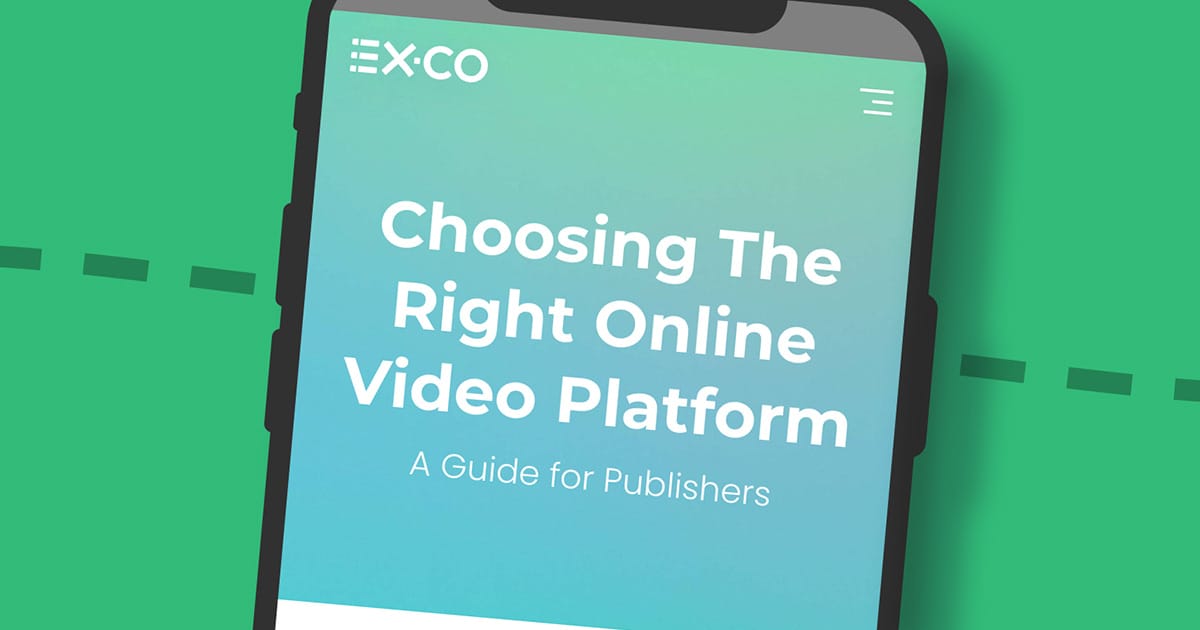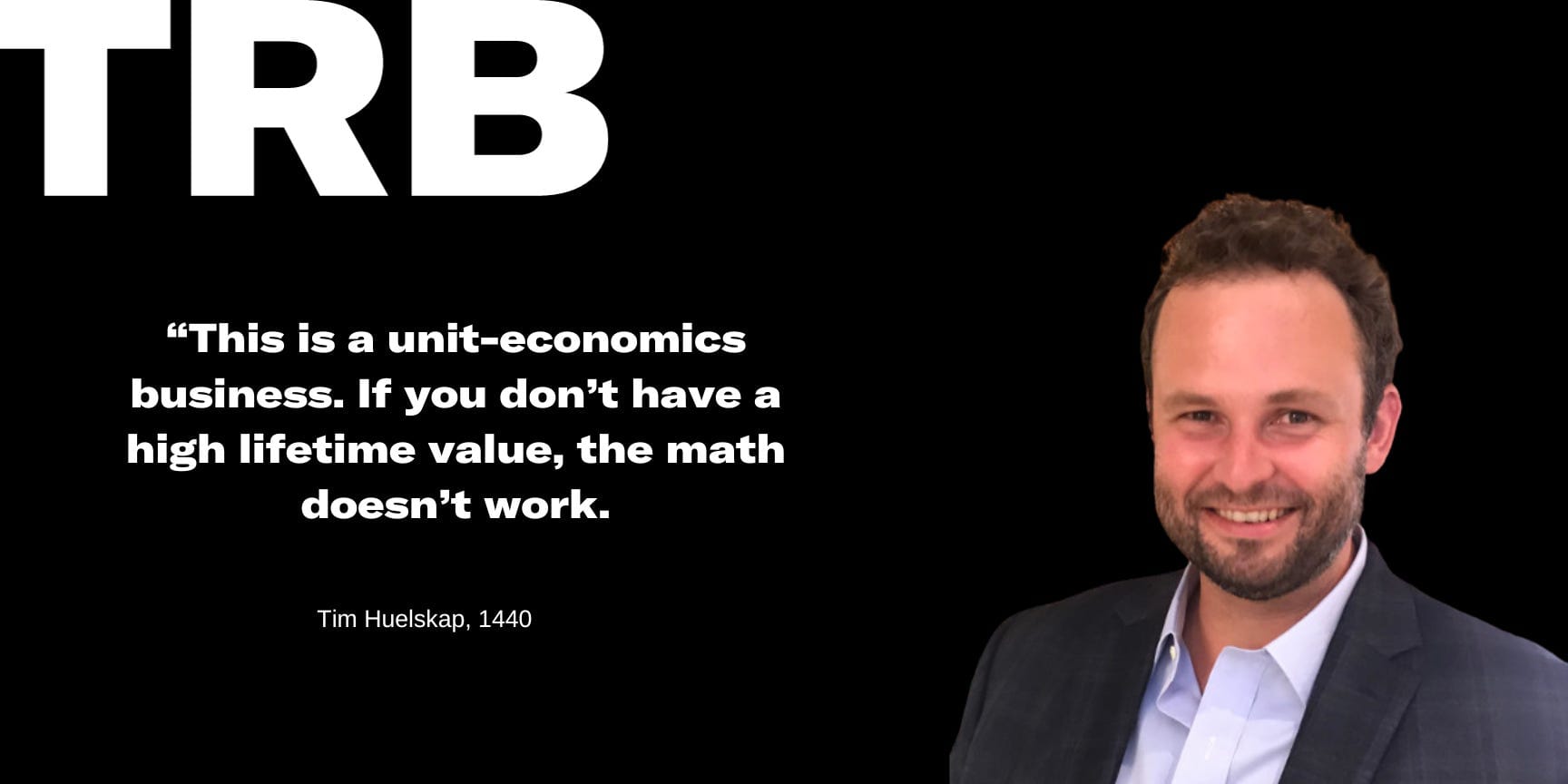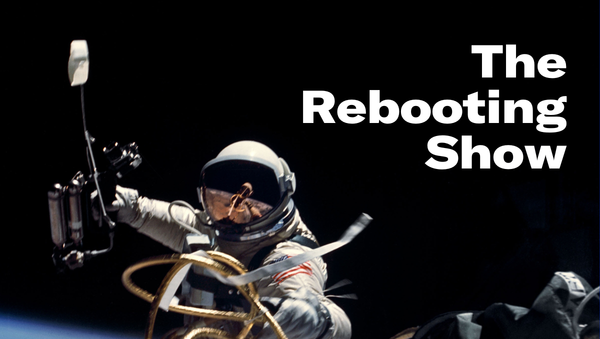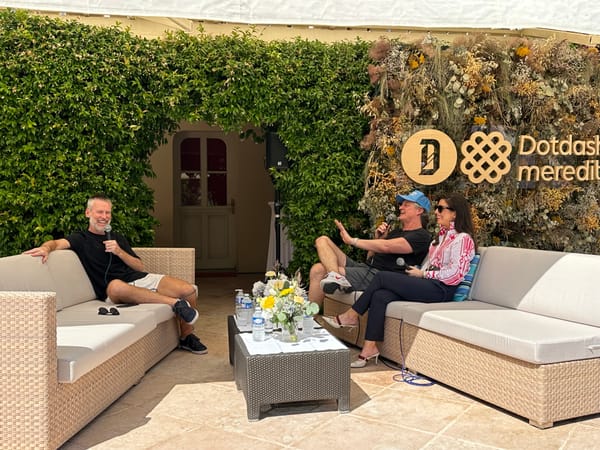1440's moneyball approach to media
1440’s Tim Huelskamp on flywheels, unit economics and EBTIDAG

This week on The Rebooting Show, had a great conversation with Tim Huelskamp, co-founder of 1440, a fast growing general news newsletter that’s taking a moneyball approach that’s readymade for a more-with-less era. First up, a message from this week’s presenting sponsor, Ex.co.


As revenue-driven businesses, publishers need to keep their bottom line top-of-mind when selecting an online video platform. EX.CO’s new guide for publishers: “Choosing the Right Online Video Platform” demystifies the selection process and empowers you with the knowledge and insights you need to make an informed decision.

Five cents. That’s how much general-news newsletter 1440 makes each time one of its 3 million subscribers opens one of its daily emails. Say what you want about scale, but nickels can add up when the multiplier is in the millions. After paying for the expenses of its 14-person team, the profits are then invested back into growing 1440’s subscriber base with paid marketing campaigns through Facebook and Instagram, newsletter ads and other channels.
That “flywheel” has enabled 1440 to enter an exclusive club: It generates over $1 million in revenue per employee. (Punchbowl is in this club; I’d be interested in hearing from others.) That’s particularly notable because 1440 is not a niche play aimed at a narrow but lucrative segment, such as B2B or DC powerbrokers. Those approaches have higher lifetime values than the nickel per open 1440 gets, but they also have far smaller addressable markets.
“This is a unit economics business,” Tim told me on this week’s episode of The Rebooting Show. “If you don't have a high lifetime value, the math doesn't work.
Tim is a true media operator. He and his co-founder Andrew Steigerwald do not come from the media business. Tim previously worked in private equity. Newcomers have advantages in not being tied to how things have long been done. To Tim, it was obvious that a newsletter business could be very profitable and fast growing so long as it was focused on unit economics. That means grinding the math of what a subscriber is actually worth, something that audience-based web models often skipped, as pointed out last month by The Sporting News CEO Rich Routman.
1440 sees a large market (up to 100 million Americans) in educated people who want to keep up with the news but are turned off by the real or perceived creep of opinion into coverage – and who are overwhelmed by the sheer number of sources.
That provides a critical business advantages. The biggest is “curation” (aka aggregation) has proven time and again as an effective way to keep costs down. Original reporting is expensive; summarizing it is not. There’s a reason that local news newsletters are mostly aggregators.
Paid growth is not a side tactic in a model like 1440. It’s integral to the model. There was a time when publishers would downplay or even deny they relied on paid growth channels. 1440 reinvests profits into growth. Tim has a WeWork-esque metric: EBITDAG, or earnings before taxes, depreciation, amortization and growth. By that metric, Tim says 1440’s margin is 75%.
Like many marketers found when Facebook pulled the plug on organic reach, paid growth might cost money but it’s also predictable. Relying on viral surges in traffic is nearly impossible for a business model, as proven time and again in the last era.
Savvy ad buying as a competitive advantage will become more prominent. Later today, Milk Street founder Chris Kimball is joining us to record this week’s episode of People vs Algorithms. As Milk Street’s model has moved more into being a retailer, advertising has become more important.
Last week, at a video leadership dinner The Rebooting hosted, one executive noted flatly that organic growth on a place like YouTube is impossible.
Forget the “only losers pay for it” mantra. Distribution is distribution. If the product isn’t any good, all the ad buying in the world isn’t going to keep people around, aka the leaky bucket problem of those with substandard products that end up constantly paying to replace people who flee.
“We love the paid model,” Tim said. “Most sophisticated businesses in the world think about unit economics.”
Listen to the full episode on Apple, Spotify or wherever you get your podcasts. If you like The Rebooting Show, please leave it a rating and review, otherwise I might need to to try one of these bot services to get distribution.

Come to the Self-Serve Summit on Oct 18
If you’re in town for Advertising Week, come to the Self-Serve Summit 2023 powered by DanAds. I’m giving a talk there about the more-with-less era, and how publishers will need to reorient their strategies in a post-ZIRP era. The Self-Serve Summit is on Wednesday, Oct. 18, from 9am to 6pm, at Glasshouse Chelsea. Other speakers include investment banker Terry Kawaja, and there will be panels covering OTT, retail media, AI and more.
The state of video
Last week, we held the second dinner in The Rebooting Dinner Series, bringing together a group of top executives to discuss video strategies. Thanks to VideoElephant for sponsoring the dinner, and for underwriting The Rebooting’s research report, The State of Publisher Video Monetization. Some takeaways from the dinner:
- On-site video remains a challenge. User expectations are changing, but for many non-video native destinations video is really an extension of an ad strategy to make up for commoditized display.
- Video can't be seen in isolation. Subscriptions act as a force function to push an LTV mindset. One publisher shared how they stopped showing pre-roll ads to subscribers because their data shows that a subscriber engaged in video is far less likely to churn.
- Time for publishers to take more control. One publishing executive made a compelling case, with actual data, that the complaints about ad tech middlemen taking an unfair share of the money that moves from marketers to publishers are very warranted. I’m hoping to have this person on The Rebooting Show to discuss this.
If you’re interested in applying for an invitation to one of The Rebooting’s dinners, submit your information here. We are putting together a full slate of dinners in 2024 that will focus on: first-party data strategies, applying AI, modern ad buying, subscriptions, commerce, video and streaming, product building in media and B2B.
For sponsorship information, hit reply or send me an email at bmorrissey@therebooting.com.




